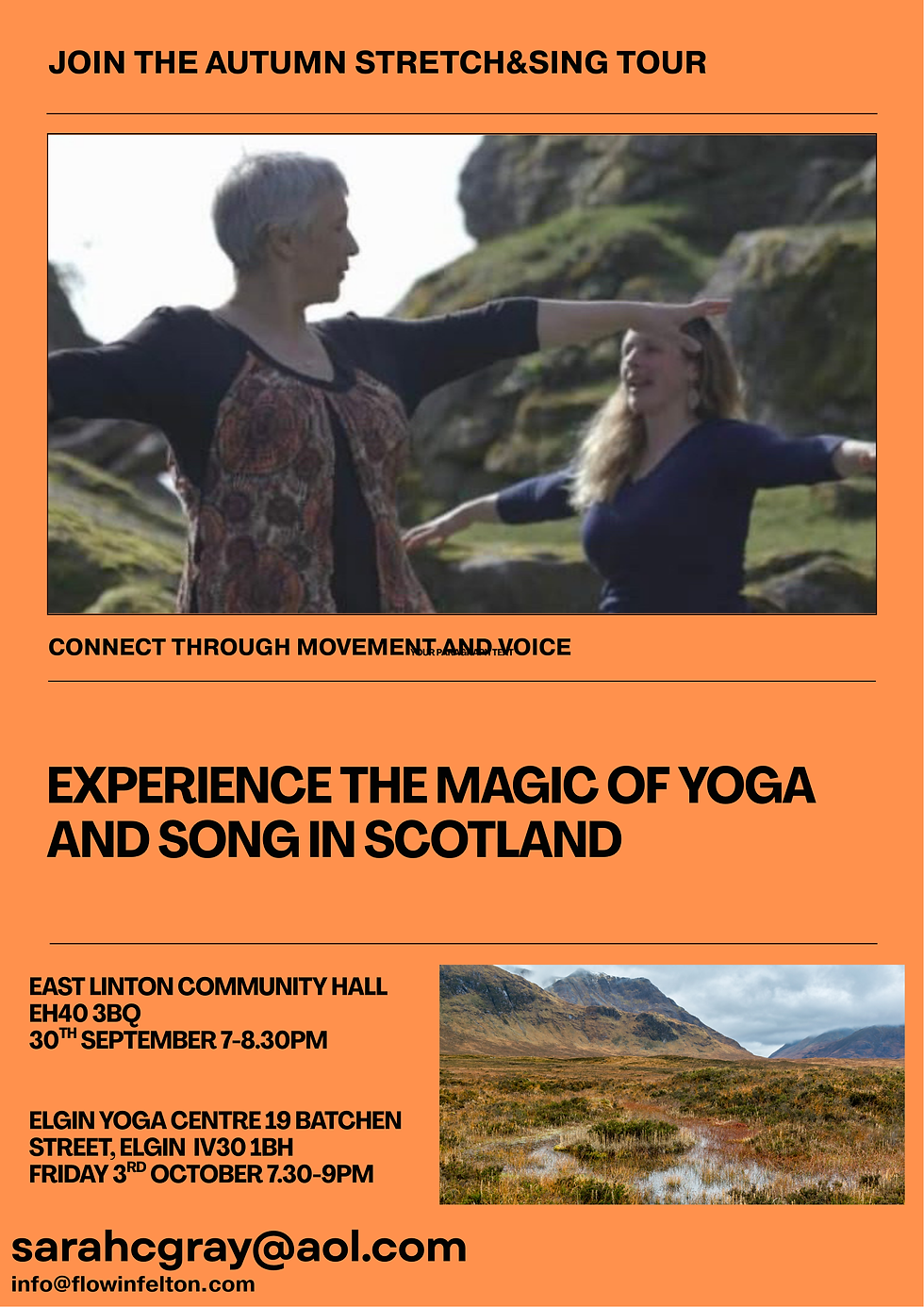Surely You Can Sing or You Can't?
- Sarah Gray
- Jun 7, 2021
- 3 min read

It had been a while since I had heard this remark, which came recently from a friend visiting for the day, slightly bemused by my job and emboldened by a couple of pints to ask the question! I didn't blame them, though, and have been thinking about this strongly-held assumption (which I have encountered even among fellow musicians, grrr). Rather than dismissing the question, I wondered, 'what do they mean?'
I think what they mean is 'you can either sing in tune or you can't'. Now this is interesting. I would like to propose that PITCH IS NOT EVERYTHING. It is one facet of singing. I myself have a tendency to go sharp every now and then and there are some members of my immediate family who have great tone and power but, being completely untrained, have a tangential relationship to the 'correct' notes! But they love singing and I'm not about to stop them.
Seriously, I think this obsession with tunefulness is what leads so many people being told in their childhood that they can't sing - so they don't sing. That is, quite frankly, appalling. I have met so many people who get very emotional in their lessons when they start to recognise their own abilities after years and sometimes decades of being afraid to sing. We know that ear-training and pitch-matching can be learned and that children (my own included) develop pitch awareness at different times. Pitching correctly can go awry at various points of your life too, which can prove startling to teenagers who have been the stars of their Primary School shows and find it a shock that they need to work at it in Secondary School!
Over the last 20 years of teaching I have become far more interested in the physical experience of singing, whole-body singing, and trying to switch off the critical mind that is matching the note to an ideal. That will come. The other question I have often been asked is 'Can you teach anyone to sing?' and so far, fingers crossed, the answer is yes, people do improve if they put in the work. Sharpness and flatness can be corrected. Breath control and tone, and of course musicality, can be taught, like any other instrument. I won't go into all of that now, because I am more interested in considering the basic question of our obsession with pitch. It's not even a consistent approach - I think it sways with fashion. I would suggest that there is a current fascination with the belting voice in Western pop music that doesn't seem to be going away, even though it often seems to me the singer is a touch on the flat side. It could well be my ears though!
One quick side note - I think often people respond to power. Who wouldn't? It is thrilling to hear a really big voice, be it pop, Opera, Musical Theatre, gospel.... and it also feels awesome to sing really loud, so long as you are doing it safely. Especially within a choir where you feel supported on all sides. So don't become obsessed with getting 'the right note' and just start to SING.
Incidentally, the cartoon picture at the top of this has terrible posture in some ways - the 'chin' is up, there is more than a suggestion of yelling on show here (I would want to have a word about support and relaxation!) but at least the yellow person looks like they are having fun.
I'm off to sing O Mio Babbino Caro and a bit of Sister Sledge. Maybe even Feeling Good - I will be rubbish on the bottom notes but I will be forgiving!


Comments